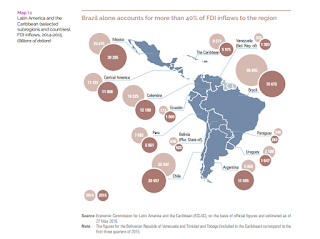Tomorrow the OAS will be meeting to discuss the question of invoking the Democratic Charter, with lots of intense discussions going on ahead of time. What should we expect?
As I've written before at Latin America Goes Global, I think the most that can happen with the OAS and Venezuela is real regional dialogue about the state of democracy there. Nothing else really can happen.
Since the Democratic Charter was approved in 2001, it's been little used. With the 2002 Venezuelan coup, the OAS passed a quick resolution but pro-democracy Venezuelans solved the situation themselves quickly before any other action was taken.
Here was the Bush administration (specifically Roger Noriega) shortly after Hugo Chávez was returned to power, on the context of discussing the Democratic Charter:
According to the best information available at the time, President Chavez had fired his vice president, dismissed his cabinet, and resigned, and was arranging another hasty trip to Cuba. Therefore, on April 12, Pedro Carmona swore himself in as provisional president, called for new elections, and ordered that the National Assembly and Supreme Tribunal of Justice be dissolved. President Chavez returned to office late at night on April 13.
It's simply comical. That gives you a good sense of how the Bush administration viewed the Democratic Charter.
In 2009 the OAS suspended Honduras because of the coup there. The result? Nothing. Latin America--including Venezuela--pretty much looked to the United States to resolve the crisis. In 2012, the OAS had no interest in backing Fernando Lugo after he was removed from power, and you could really say the same about Brazil in 2016.
If Latin American leaders don't want the OAS to work, then it won't. Even Mauricio Macri, a harsh critic of the Maduro government, values maneuvers to get an Argentine (Susana Malcorra) named Secretary General of the UN more than the Democratic Charter.
Therefore I wouldn't look for suspension of Venezuela from the OAS, or even a resolution with harsh condemnation.
With Tom Shannon currently talking to the Venezuelan government, we might see some more commitment by Maduro for dialogue/negotiation, but the difficult part is the recall referendum, which both sides have publicly declared non-negotiable. At this point dialogue that doesn't include the referendum is essentially equivalent to stalling, which benefits the government.
Read more...



